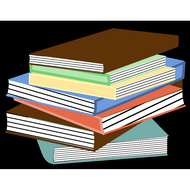
(View Complete Item Description)
The assignment revision is in tandem with the adoption of a new OER, Contemporary Families: An Equity Lens, by Liz Pearce.
HDFS 201 Contemporary Families in The U.S.
An introduction to families with application to personal life. Focuses on diversity in family structure, social class, race, gender, work, and its interaction with other social institutions.
Outcomes
Upon successful completion of this course, students will be able to:
Use theoretical frameworks to interpret the role of the family within social process and institutions. Describe the nature, value, and limitations of the basic methods of studying individuals and families. Using historical and contemporary examples, describe how perceived differences, combined with unequal distribution of power across economic, social, and political institutions, result in inequity. Explain how difference is socially constructed. Analyze current social issues, including the impact of historical and environmental influences, on family development. Analyze ways in which the intersections of social categories such as race, ethnicity, social class, gender, religion, sexual orientation, disability, and age, interact with the country's institutions to contribute to difference, power, and discrimination amongst families. Synthesize multiple viewpoints and sources of evidence to generate reasonable conclusions.
Material Type:
Homework/Assignment
Author:
Terese Jones




















